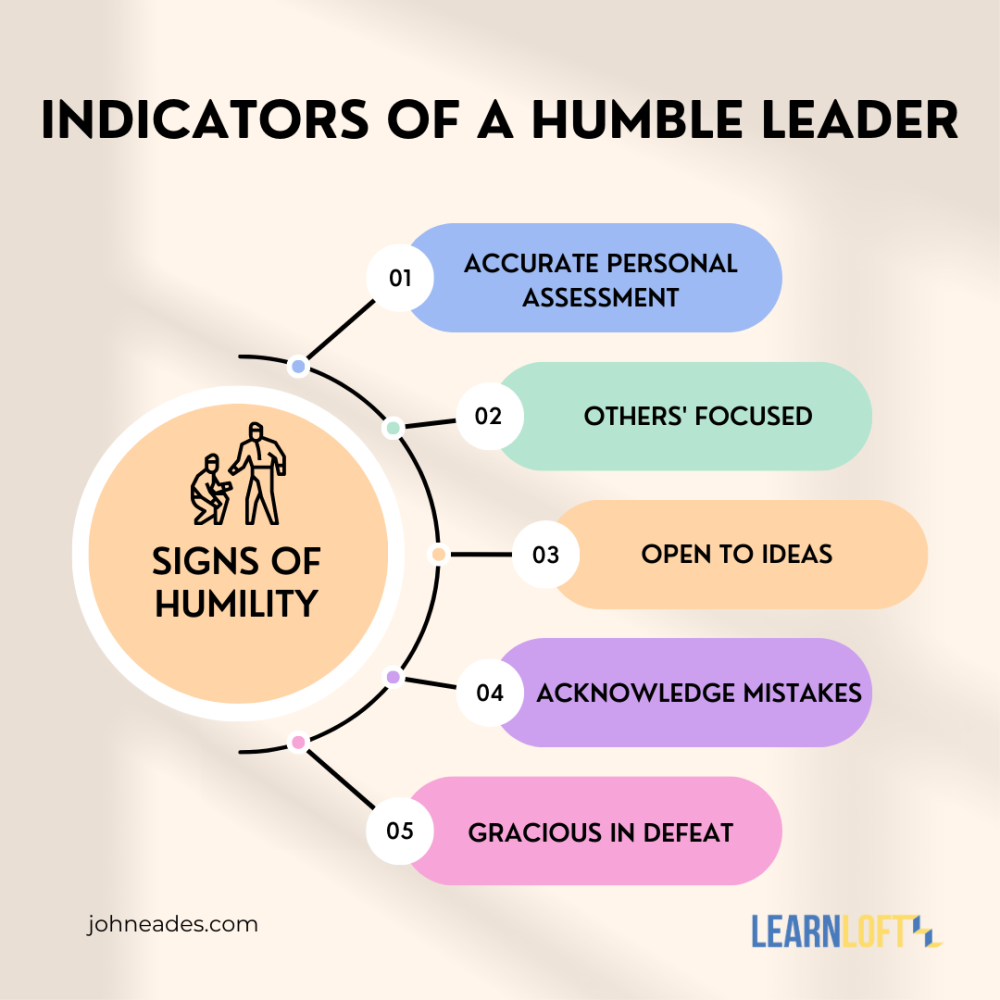Comments
- No comments found

Becoming a great leader depends on the depth of your humility.
There is something remarkable about humble leaders. It could be how they listen and make you feel heard. It could be how they communicate or how they model what you want to become.
According to research in the Academy of Management Journal, humble leaders "embolden individuals to aspire to their highest potential and enable them to make the incremental improvements necessary to progress toward that potential."
Clearly, being a humble leader pays off in the performance category, but what's most remarkable is the vast majority of genuinely humble leaders have every reason, because of their accomplishments, to reject humility, but instead, they embrace it. They don't just talk about it, but it's built into who they are and how they lead. It's as if, deep down, they understand that the path to effective leadership is paved with humility, not pride.
Great leaders understand that the path to effective leadership is paved with humility, not pride.
Unfortunately, most executives struggle to grasp this concept because their current title and power create a false belief that they are above or more significant than others. So not only is it painful to work with them, but it's excruciating to work for them.
When you think of some famous leaders throughout history, humility is far from the first leadership trait that comes to mind. Instead of thinking of humility as some soft or unimportant leadership skill, it's essential to grasp what it means.
Websters defines it as; freedom from pride or arrogance. Being humble isn't a lack of confidence or not believing in yourself. In fact, quite the opposite is true. To have freedom from pride and arrogance, it must start from a place of introspection.
C.S. Lewis said, "humility isn't thinking less of yourself; it's thinking of yourself less." Many years before Lewis, Saint Augustine wrote, "humility is the foundation of all the other virtues."
Since humility is the foundation of all of the other virtues and it's essential to think about other people, which is paramount in leadership, what are the indicators that show a leader is truly humble?
In an article a few years ago, the Washington Post found: "True humility, scientists have learned, is when someone has an accurate assessment of both his strengths and weaknesses, and he sees all this in the context of the larger whole. He's a part of something far greater than he. He knows he isn't the center of the universe. And he's both grounded and liberated by this knowledge. Recognizing his abilities, he asks how he can contribute. Recognizing his flaws, he asks how he can grow."
In my work coaching, studying, and developing leaders, there are five indicators of a humble leader:

Accurate Personal Assessment - Accurate sense of one's skills, abilities, and accomplishments.
Others' Focused - Ability to will the good of another and put others' needs ahead of their own.
Open to Ideas - Desire to get the correct answer and not be right.
Acknowledge Mistakes - Admit wrongdoings and give the grace to improve moving forward.
Gracious in Defeat - Maintain high character in losses to fuel future successes.
Whether you see these indications of humility in yourself, no one is immune to allowing their ego and pride to take over. If you struggle with humility or want to be a more humble leader, here are some ways to do it.
All improvement starts with the truth. When it comes to humility, being a humble leader also begins with the facts. Philadelphia 76ers basketball coach Doc Rivers said, "Average players want to be left alone. Good players want to be coached. Great players want to be told the truth."
All improvement starts with the truth.
The truth is every position today will one day be held by someone else. The President of the United States, The Pope, and even your current role will one day be someone else's seat. Allow this truth to sink into your soul.
You have a significant role to play while you have it, and you should give everything you can to meet your potential, but it can't and shouldn't be all about you. It has to be about elevating others and helping those around you become the best version of themselves.
Some signs of an arrogant leader include; not listening, always wanting to be right, avoiding accountability, and thinking they know it all. A humble leader looks and feels much different. They are obsessed with learning and remain coachable regardless of their time leading.
TD Jakes said, "The world is a university, and everyone in it is a teacher. Make sure you wake up and go to school your entire life learning from the good and the bad."
The world is a university, and everyone in it is a teacher. Make sure you wake up and go to school your entire life learning from the good and the bad." TD Jakes
Consistently being proactive in learning and remaining coachable throughout your life will help you be humble. It creates a mindset that you are never a finished product and that there are sources of knowledge that a bigger than you.
One of leaders' most significant mistakes in choosing pride over humility is avoiding accountability. Instead of inviting people in their lives to be feedback vehicles, they decide to go it alone. In the beginning, it isn't a big deal. But as time goes on, the lies and thoughts in one's head become their reality. Those thoughts then become engrained in their behavior, and it's what other people experience.
Leaders who choose pride over humility avoid accountability.
The vaccine for this situation is to embrace accountability. Put people around you who keep you grounded and are willing to have difficult dialogues when they recognize something is off. Then you keep an open mind and heart to the words they say without getting defensive or making excuses.
I recognize this is easy to write but difficult to put into practice. But the best part is that when your team sees you embracing accountability, they will also embrace it.
Becoming a great leader does indeed depend on the depth of your humility. Your path to effective leadership is paved with humility and not pride. However, it doesn't mean it's easy, or it doesn't mean you won't have moments where pride or ego win you over. The key is recognizing these moments and returning to the humble path quickly.
John is the CEO of LearnLoft, author of, F.M.L. Standing Out & Being a Leader and host of the 'Follow My Lead' Podcast. He writes or has been featured on Inc.com, LinkedIn Pulse, TrainingIndustry.com, eLearningIndustry.com, CNBC Money, and more. John completed his education at the University of Maryland College.
Leave your comments
Post comment as a guest